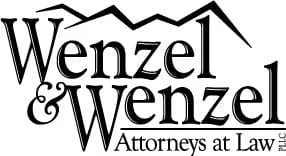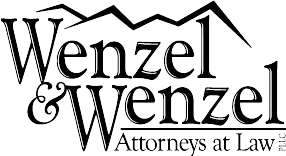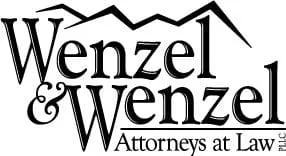Achieve Your Planning Goals
Estate Planning
You will receive personalized and detailed advice in achieving your planning goals when you work with an experienced attorney to draft your documents. Sarah Wenzel has been handling estate planning in North Carolina since 2003. Contact us us to get started with a worksheet.
Our office is dedicated to providing you with a complete and thorough set of documents for your unique situation. Estate planning doesn’t happen overnight. We work with you to develop a plan that provides for you, in the both the event that you cannot handle things for yourself while you are alive and also in the event of your death.
If you are interested in working with us to develop a custom estate plan, we will send you a worksheet to get you started. The worksheet is very important in providing attorney Sarah Wenzel with information about your unique situation, so she can prepare the best plan for you.
After you return your worksheet, we will schedule your Planning Meeting. At the Planning Meeting, Sarah will review your situation, get to know you, ask you questions, advise you, and provide you with options to achieve your goals. Then, she will schedule your next appointment, to review some initial drafts for your custom plan and documents.
Please note that Planning Meetings are often booked months in advance, and sometimes further out, depending on the time of year. Typically, most estate plans require 3-5 appointments with the attorney.
Please note that our office does NOT provide any advice regarding Medicaid qualification or protecting your assets from nursing home costs.
Wills
A Last Will and Testament is a document where you can direct who will receive your assets at your death. You also designate an Executor who will handle the court paperwork, paying your final bills, and distributing your assets. However, a Will must still go through the court probate process in order to be effective.
At this time, our office generally does not recommend that you only do a Will. We typically use Trusts to avoid the probate process as much as possible, and use a Will as a backup plan, in the event that something was not transferred to the Trust.
What is Probate?
What is commonly referred to as “probate” is really the estate administration process through the court system. Without a Will, this can be a very complicated and expensive process. In a Will, you designate who will handle your estate and who will receive your assets after you pass away. With a properly drafted North Carolina Will, the probate process is simplified, but not eliminated.
For a more detailed description of the probate process, see more information under Probate & Estates.
Trusts
There are many different types of trusts. The basic probate-avoidance trust is commonly referred to as a Living Trust or Revocable Trust. For more complex trusts, please contact our office to see if it is something we handle.
Revocable Trusts or Living Trusts allow the person setting up the trust to change the trust during their lifetime and often takes the place of a Will. An individual or a married couple can set up such a trust, naming themselves in all of the key roles, such as Trustee, maintaining control of all of their assets.
More information from the National Academy of Elder Law Attorneys
Trusts Avoid Probate and Maintain Privacy
Trusts avoid the probate and estate administration process that Wills must file. Some people prefer to pass their assets privately. Further, your Last Will and Testament will have to go through the probate process in every state where you own property, not only the state in which you live. This means dealing with different laws, different courts, and usually additional lawyers. And, you will need to make sure your will complies with each state’s laws. With a Living Trust, you can typically avoid the public probate process, bypassing the paperwork and public listing of your assets.
Trusts Can Protect Assets for Beneficiaries
In utilizing a trust, you can also restrict how and when the recipients have access to what you have left them. A common restriction in a trust is having the property controlled by the Trustee until children or minors reach a certain age, at which time they would then have control of the assets, or possibly gain control in stages. Other restrictions can also apply to beneficiaries with a disability, or an addiction, where it is unlikely that they would spend the money wisely. Including restrictions in a trust can prevent an immature beneficiary from spending the money all at once, can designate funds to be used only for a specific purpose, such as education or a down payment on a home, and can also protect the trust property from your children’s creditors or their spouses in the unlikely event they should get divorced.
EXCEPTIONS: Revocable Living Trusts do not protect your own assets from your own creditors. Our office does not handle these specialized types of trusts.
Trusts and Incompetency
Further, with a trust, you can choose who will handle your assets for you if you become incompetent or unable mentally to handle your own affairs, such as dementia or a stroke. In setting up a trust, you can name a Trustee of your choosing. Doing so will avoid a court monitored guardianship for you as well. When someone becomes incapacitated, without having such a Trust or Power of Attorney in place, a family member generally petitions the court to appoint a guardian to be able to legally handle their financial affairs. With a trust, the person named as trustee to take over in that situation simply takes over, under the conditions you created in your trust. It avoids not only the time-consuming and costly legal proceedings, but also the emotional pain these legal proceedings can cause as well.
Trusts in a Remarriage
If you and your spouse have separate children, you may want to benefit your spouse and your own children when you die. With a Trust, you can leave your assets in trust to benefit your spouse, but ensure that what is left actually passes to your own children.
Without a Trust, if you leave all of your assets to your new spouse, then after you die, your spouse can essentially disinherit your children. If the assets now belong to your spouse, your spouse can do a new Will, leaving all of those assets to the spouse’s chosen beneficiaries, who may not be your children. A Trust can help prevent this disinheritance of your children.
Trusts Inheritance Tax Planning
Estate tax planning is also an important reason for creating a trust. Living trusts can help married couples that have significant assets to generally pass twice as much to their beneficiaries, free from federal estate taxation. This amount includes real estate, investments, personal property, life insurance, retirement accounts, etc.
Other Documents
As part of your Estate Plan, we will also assist you with:
- Financial Powers of Attorney
- Health Care Powers of Attorney
- Living wills
- Naming beneficiaries for Life Insurance, Retirement Accounts, Annuities, and other accounts
A Financial or General Power of Attorney is a document that names someone to be able to sign for you for financial transactions during your lifetime. This document is particularly important in case you ever become unable to handle your own finances.
A Health Care Power of Attorney is a document where you name the person who you wish to be able to make your health care decisions for you when you are unable to do so. This person can then talk to your doctors and make decisions about doctors, medical facilities, surgery, nursing homes, medical treatment, autopsies, organ donation, etc. This is effective when you are unable to make or communicate these decisions for yourself. This may be a temporary situation, a long-term situation, or an end of life situation.
A Living Will is legally called a Declaration of a Desire for Natural Death. In this document, you can direct whether or not you want artificial life-prolonging measures in end of life situations. It is important to let people know what you would or would not want.
Minor Children
In many cases, it is necessary to have a guardian for your minor beneficiaries to receive assets from your estate. You can choose who you wish to serve as guardian of your children by designating the person through your will. Ultimately, a guardian must be appointed by the court which will then look to your will for your wishes in this matter.
However, generally, minors should not own assets because the court will be involved and the assets must be turned over to the minor at the age of eighteen. In order to avoid this, Sarah usually suggests that you leave assets to minors through a trust. With a Trust, you can also name retirement benefits, life insurance, and other beneficiary designated accounts to pass into the trust for your minor child. Otherwise, they will pass into a court guardianship.
Medicaid and Nursing Home Qualification
Please note that our office DOES NOT currently provide planning services related to Medicaid qualification. Qualifying for Medicaid and government benefits for nursing home care is a specialized field and is generally outside the scope of an estate planning appointment. We do not take these types of cases.
Frequently Asked Questions
How Do I Get Started?
Please call or contact our office. We will have an online worksheet soon, or we can mail or email you our initial information packet. This packet has information about our process and pricing. If you then want to move forward, we will send you a worksheet to begin the process. It will provide the attorney with information to get to know you and your unique situation. Further, the attorney can get an idea of what you might need. Then, we will schedule your Planning Meeting. We do charge a $500 flat fee for the Planning Meeting, for the attorney to meet with you and recommend what you need. You are under no obligation to continue. Our current pricing for options beyond the Planning Meeting are in our information packet.
Please note that Planning Meetings are often booked 4-6 weeks in advance, and sometimes further out, depending on the time of year. Typically, most estate plans require 3-5 appointments with the attorney.
Should you decide to move forward with our office providing you with an estate plan, the attorney will schedule your second appointment (typically to review initial drafts for your custom plan) at the end of your Planning Meeting. Typically, most estate plans require 3-5 appointments with the attorney.
I Recently Moved to North Carolina. Do I need to redo my documents?
If you have estate planning documents from another state, it is important to have a North Carolina attorney review your documents now that you are a North Carolina resident. Each state has different laws for probate, wills, trusts, powers of attorney, health care powers of attorney, and living wills. It is common that such documents need amending now that you are in North Carolina in order to be valid here.
I have Power of Attorney for My Parent
Having Power of Attorney is very useful. However, there are many things you generally cannot do for your parent with a power of attorney. Estate planning is generally one of them. Only your parent can change his or her Will. Therefore, if you parent wants to update their estate plan, he or she needs to be our client and needs to be the person to call us to begin the process. We need to ensure that he or she understands what he or she is doing, so that the documents cannot be contested later. If your parent is already unable to make decisions for himself or herself, it is probable that his or her estate planning documents may not be changed.
I Need Power of Attorney for My Parent
Unfortunately, your parent needs to be the person to choose to come in to prepare an estate plan, which would include naming someone in a Power of Attorney.
If your parent is already unable to handle things for himself or herself, you may need to pursue a guardianship. At this time, we do not handle assisting people with obtaining guardianship. If you become guardian, we do assist clients with the accounting paperwork required by the Court.
What Does an Estate Plan Cost?
Typically, the attorney will charge a flat fee for your Planning Meeting, to review your situation, get to know your needs and desires and recommend a personalized plan. As of January 2023, we charge $500 for the Planning Meeting. Contact our office for current pricing or see our information packet.
I already have estate planning documents, which another attorney drafted.
If you already have estate planning documents that our office did not prepare, we will review all of your current documents, to determine what might need to be updated. Sometimes the laws have changed since your previous documents. As you will be a new client to our office, we will still need a completed worksheet and copies of all of your current documents, so that we can review your plan with you and determine if you need other changes that you did not anticipate.
I need an appointment right away.
Unfortunately, our office is unable to offer immediate appointments. As we treat the estate planning process as being very unique to each client, we spend a lot of time with our clients, and preparing their estate plan. The process ensures that we have enough time to provide customization for each unique situation.
The sooner you complete and return your packet and then your worksheet, the sooner you can schedule your Planning Meeting. Please note that Planning Meetings are often booked 4-6 weeks in advance, and sometimes further out, depending on the time of year.
Contact Our Team Today
Wenzel & Wenzel, PLLC, in Waynesville, NC, can be reached at 828-452-9099 or [email protected].



